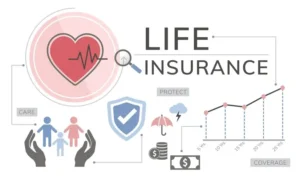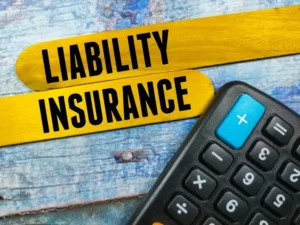Table of Contents
Home owners’ insurance is a critical part of being a responsible home owner. It provides a financial safeguard against potential losses or damages to your home and personal belongings. Understanding the intricacies involved in home owners insurance will allow you to choose that policy which will best protect your most important asset. This article discusses the fundamentals of home owners insurance, coverage types, determinants of premiums, among other factors.
Home owners insurance is a very significant part of responsible home ownership. It offers some form of financial protection against loss or destruction of your home and properties. Understanding home owners insurance will help you go for the right policy in safeguarding your most important asset.
In this article, we are going to cover the basics of home owners insurance, different types of coverage, determinants of premiums, and even more. Home owners insurance is one way to help protect your house and personal things. It is like financial cushioning for unnatural acts, theft, or accidents that just come out of the blue.
Some of those decisions can be informed by understanding the types of coverage and the different factors that affect premiums. We will cover the basics of home owners insurance, types of coverage, and some major factors that will influence your premium in this article.
Whether you are a new home owner or looking to update your current policy, this guide will help you navigate the details of home owners insurance and select an appropriate policy for you Home owners Insurance.
What is Home owners Insurance?
Home owners insurance is a type of property coverage involving losses and damages to one’s residence, furnishings, and other assets within the home or on the premises Home owners Insurance. It also covers liabilities due to accidents either in the home or on the property. It is primarily a financial backup for recovering from unforeseen natural disasters, theft, and/or accidents.
It is a form of property insurance that covers losses and damages to a person’s home, furnishings, and other assets. It can also provide liability for accidents occurring in the home or on the property. Simply put, it covers the financial burden one may incur if one experiences some disasters, theft, or accidents.
Home owners’ insurance is like a warm, fuzzy security blanket for your house, covering any losses or damages to your home, its contents, and all other possessions within. It also covers one’s responsibility for injury or damage on your premises to others. It is financial security that keeps one going through an unexpected event due to nature, theft, or accident.
Types of Coverage in Home owners Insurance
There are several types of coverage embodied in home owners insurance policies:
In this way, home insurance might include the following coverage:
- Dwelling Coverage: Home insurance physically protects the walls, roof, and foundation of your house.
- Personal Property Coverage: This would protect all your personal belongings, ranging from furniture and electronics to clothes.
- Liability Protection: If there is some kind of injury on your premises and someone decides to sue, this section would cover you.
- Additional Living Expenses (ALE): Pays for temporary living arrangements if your home is uninhabitable due to a covered event.
- Medical Payments Coverage: This pays medical bills of guests hurt on your property, regardless of liability.
Home owners policies may insure different types of coverage designed to protect a host of things in your home and personal property. Dwelling coverage insures the actual structure of your home from damage due to covered perils.
Personal property coverage safeguards your belongings, ranging from furniture to electronics to even your clothes, in the event of theft or damage. Liability protection provides protection against financial loss if someone were to get injured on your property and file a lawsuit against you.
ALE coverage provides for temporary living expenses when your residence is unusable due to a covered loss. Lastly, medical payment coverage pays for the medical expenses incurred if a guest is injured on your property, regardless of fault. Knowing these types of coverage will help you in choosing a comprehensive home owners insurance policy that suits your needs.
Factors That Influence Your Home owners Insurance Premium
A number of factors can affect how much you pay for home insurance. Some of the common ones include:
- Location: Homes in the natural calamity-prone or high-crime-rate areas are bound to have higher premiums.
- Characteristic of Home: The age, size, and type of construction of a home is also a determining factor for the premium.
- Coverage Amount: As with just about any kind of insurance coverage, the higher the coverage limits, the greater the premium.
- Deductible Amount: Increasing your deductible amount will reduce your premium; you will ultimately pay more out of pocket when a claim arises.
- Credit Score: Most insurance companies use credit scoring as a way to determine risk. The better your credit score, the less you might have to pay for premiums.
Other factors that could make a difference in the premiums that you pay relate to safety and security features of your home. Fire alarms, smoke detectors, burglar alarms, and sprinkler systems make a house less of a risk for the insurance company; thus, this might lower your premium.
Besides that, deadbolts, security cameras, and neighborhood watch initiatives might reduce the risk of theft or damage and improve your rate. The reverse of this is that these investments will enhance the security of your home but also make it more attractive to underwriters, potentially shaving a few dollars off of your premium.
Common Home owners Insurance Policy Exclusions
Although home owners insurance provides a wide range of protection, there are various glaring exclusions:
- Flooding: No home owners policy will cover flooding. Your clients should get separate flood insurance.
- Earthquakes: Oftentimes, earthquake-related damages are excluded; your clients will have to buy coverage for them separately.
- Wear and Tear: Whatever damage is done due to poor maintenance or ordinary wear and tear is not covered.
- High-Value Items: Most high-value items, like jewels or art, are barely covered in most policies and often require additional endorsements.
Although there are some broad protections under home owners insurance, there are several exclusions to take into consideration. Some of these include that standard policies exclude flood damage; this is usually available as separate flood insurance. Earthquake damage is also generally excluded and must be covered under additional coverage. Poor maintenance or failure due to normal wear and tear is not covered.
Thirdly, high-value items such as jewelry, art, or collectibles are usually covered for a limited amount and often require additional endorsements to be fully covered. This no doubt calls for awareness by homeowners of those areas that are usually excluded, lest one finds themselves incurring costs that were unforeseen. Thus, awareness of those exclusions would help avert burdens not covered financially and ensure wider coverage.
Guidelines for the Selection of the Right Home owners Insurance Policy
The right home owners insurance policy can only be selected if a proper assessment of one’s particular needs and situations has been considered:
- Assess Your Coverage Needs: Determine the value of your home and what you own to establish appropriate coverage limits.
- Compare Policies: Make a detailed comparison of policies from multiple insurers to find the best cover and prices.
- Evaluate the Insurer’s Reputation: Find an insurer that is financially strong and has good customer ratings.
- Understand Your Policy: Read the policy with great attention in order to understand what it covers and does not cover, and on what terms.
This means one should be able to analyze the coverage needs based on determination of value of one’s home and personal belongings to determine and set up the limits of coverage. He can then easily compare policies offered by various insurance companies for the best cover and rates available.
Assess the reputation of the insurance company, find those with a solid financial foundation and positive feedback from previous customers. In addition, ensure you read through the policy and understand what is covered and what is not covered along with the terms and conditions. This will go a long way in ensuring that you get a home owners insurance policy which best suits your protection needs.
How to File a Home owners Insurance Claim
A home owners insurance claim can be one of those least painful processes you may have to endure if you follow these steps below:
- Document the Damage: Take photographs or videos for evidence of the damage.
- Notify Your Insurer: Reach out to your insurance company and report the incident as soon as possible.
- Fill Out Claim Forms: Fill out any required claim forms and provide the necessary documentation.
- Meet with the Adjuster: An insurance adjuster may visit your property to assess the damage.
- Payment: You will get paid as the claim gets approved based on your policy.
A home owners insurance claim could be processed with ease if one were to observe the following: Firstly, document the damages with photographs or videos as proof. Next, contact your insurance provider right after the incident of such an accident has occurred. Fill in the claim forms and submit the required documentation based on which substantiation is being made.
If there were an insurance adjuster to view your property for damage assessment, be prepared to meet with them and provide any additional information they may want. With your claim thus approved, you will get paid by the terms of your policy and take that opportunity to recover and restore your home.
The Importance of Regular Review of Home owners Insurance Policy
It pays to revisit your home insurance from time to time to make sure it maintains what you need. Here are some key reasons to do so:
- Life Changes: Major life changes that occur-adding renovation, buying high-priced valuables, and changes in occupancy-all may impact your need for protection.
- Policy Updates: Insurance firms occasionally rewrite policies, offering new coverage options. Being informed means being able to take full advantage of such more advantageous terms.
- Inflation: Since the cost to rebuild your home may rise with time, updated coverage limits would provide suitable protection.
Your home owners insurance policy is very crucial, and regular reviews will be important to keep up with your ever-changing needs and offer adequate protection. Renovations to your home, buying high-value items, and changes in occupancy are some major life changes that have a significant impact on the coverage you need.
Second, insurance companies sometimes change the policy terms or offer new coverage options. Besides, keeping up with these changes could provide you with an opportunity to enhance your terms. Inflation may raise the rebuilding cost of your home, so adjusting your coverage limits from time to time will keep your protection adequate. By constantly revisiting your policy, you will be able to be at ease with yourself and make sure your most valuable asset is very well protected.
Conclusion
Home owners’ insurance is a simple protective mechanism against untold occurrences that might happen to either the home or personal belongings. You will be in a good position to make informed decisions while choosing a policy by understanding the type of coverage, what affects the premium, and exclusions that occur.
Regularly reviewing your policy will help it stay current with your needs, and in that way, you can be sure that you will have financial security should an accident occur. It is true that insurance for home owners is an invaluable tool that enables them to protect their home and personal belongings against situations or events that may arise at any time.
By understanding the different coverages, the determinants of premiums, and the common exclusions, you will be better positioned to make relevant choices of policies. Regular reviews of your policy keep it up-to-date with changing needs for peace of mind and financial security. This will protect your most valuable asset and assure you that you are well prepared for anything that may come at the most unexpected time.
FAQ
- What does home owners insurance usually cover?
Home owners insurance covers the physical structure of your home, personal property, liability protection, and extra living expenses if your home is no longer habitable.
- Does home owner’s insurance pay for damages due to flooding?
No, home owners insurance would not cover damages resulting from floods. A separate policy has to be purchased to ensure against floods.
- Can I reduce my premium in regard to home owners insurance?
Yes, you can lower your premium by increasing your deductible, improving your credit score, and installing safety features in your home.









